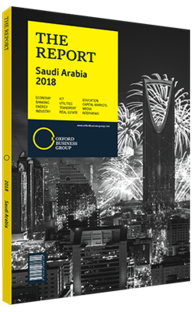Ghassan Al Shibl, Board Member and Managing Director, Saudi Research and Marketing Group: Interview

Interview: Ghassan Al Shibl
What do you see as the main digital trends in the Saudi media sector today?
GHASSAN AL SHIBL: The current shift towards digital media creates an additional level of complexity for media companies as we must be at the forefront of change and break news before competitors. Access to digital media is much easier, it provides a global reach but also requires in-depth knowledge of digital technology and infrastructure, and an understanding of what your recipients need and in what form they want to see it. We must shift the mindset from print to digital and approach media in different ways, including how to present new topics and content, its presentation on new applications and devices, and embedding new multimedia material. Social media has transformed the delivery of information as news is broadcast instantly, allowing us to further interact with our audience to generate additional digital content. There are many opportunities for collaboration between different media platforms to be more effective in communicating to the world, and social media has a complimentary capability that can serve traditional media organisations if properly employed. Nevertheless, although the majority of our publications are currently on digital platforms and we will continue to move towards digitisation, in the short term there remains a strong demand for print media.
What more can be done to incentivise entrepreneurship and creation of local media content?
AL SHIBL: Today, media is entirely about content – the launch of a new platform is simple, creating content is more challenging. Saudi youth are responding to these changes and we have seen a lot of creativity using social media to address issues facing the country. We must invest and put more effort into institutionalising the nurturing of local talent through small and medium enterprises (SMEs) involved in content generation by providing them with financial support and the necessary infrastructure. Larger media companies will then be able to benefit from the infrastructure of these SMEs instead of just creating content independently. This will allow the sector to further integrate and the necessary media and entertainment ecosystem to develop. By no means is Saudi Arabia facing a shortage of talent, but the task is to better identify where it lies.
How is the Saudi media sector responding to the globalisation of news and analysis?
AL SHIBL: We have many messages to carry and deliver globally as we progress, particularly as they relate to the country and its ambitions, the new direction we are taking, and what opportunities exist for Saudi Arabia. Communicating in other languages is becoming extremely important, and one of our publications, Arab News – initially designed to cater for the English-speaking communities within the Kingdom and the Gulf – is today becoming more international and we are looking for writers from across the globe. Another one of our publications initially for the region, Asharq Al Awsat, is today making online content available in different languages including English, Turkish and Urdu.
How are the strategies of Vision 2030 having an impact on the media sector?
AL SHIBL: Vision 2030 is moving us into a different future and this will impact all sectors in the Kingdom. Current media systems can be improved both by the government and the private sector as a prerequisite for future success. The government has launched its own programmes to cultivate talent, and we see several ministries capitalising on younger employees to communicate the government’s ambitions and targets. The government is also changing the ways in which it produces and consumes media, for example, infographics and videos are becoming increasingly important. This is itself resonating with people as information via these channels is much easier to digest, and these developments will lead to further successes elsewhere.
You have reached the limit of premium articles you can view for free.
Choose from the options below to purchase print or digital editions of our Reports. You can also purchase a website subscription giving you unlimited access to all of our Reports online for 12 months.
If you have already purchased this Report or have a website subscription, please login to continue.

